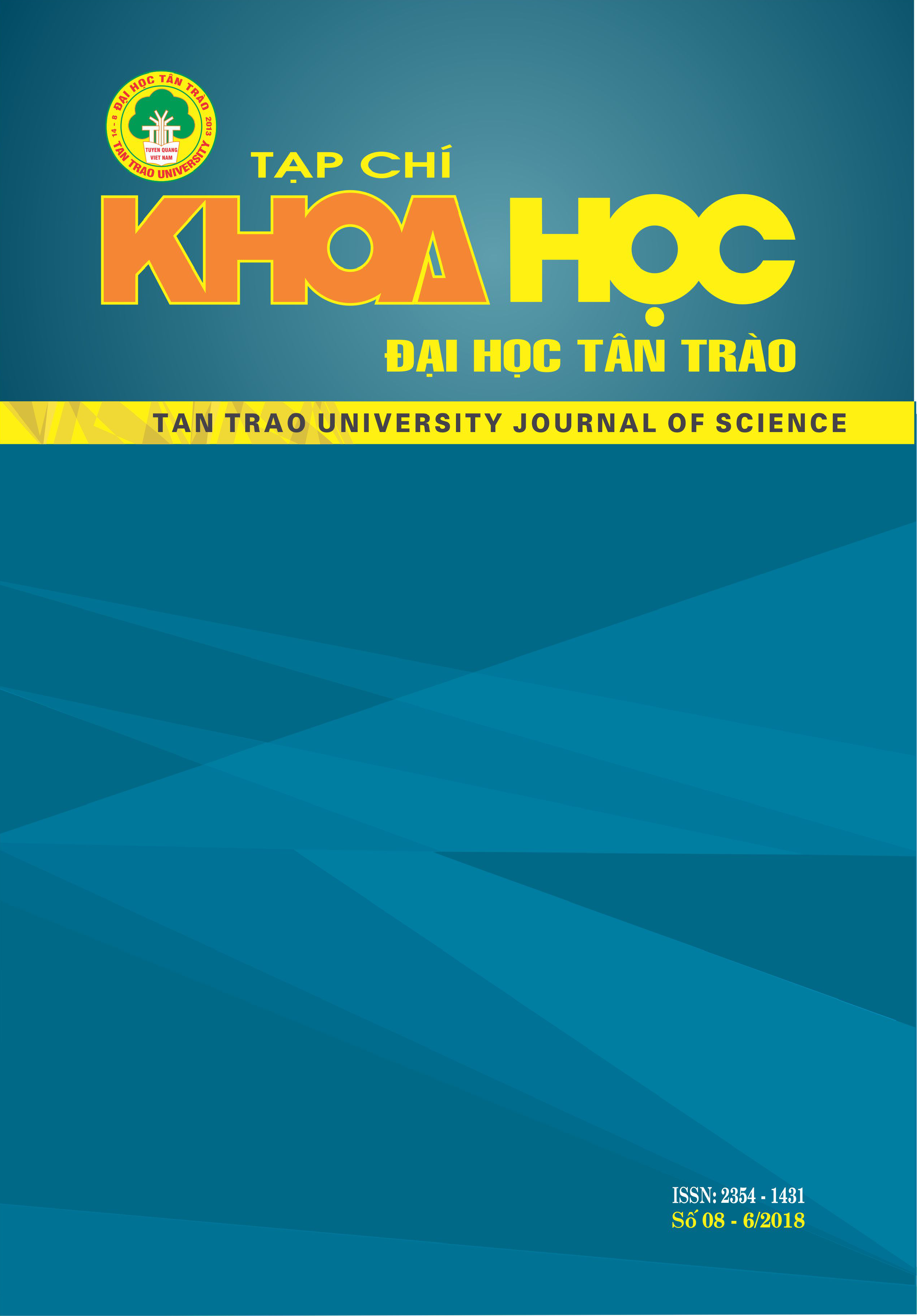Interest and some skills of drawing interest For students In foreign language learning
DOI:
https://doi.org/10.51453/2354-1431/2018/160Keywords:
Excitement, foreign language, competence, methods, techniquies.Abstract
For many years, foreign language has become one of the compulsory subjects in colleges and universities. Foreign language is also a subject that many students find it difficult to learn. This sets the requirement for foreign teachers that how to make their teaching lessons more effective and how to motivate learners. This also requires teachers to be competent not only in the professional level but also in teaching methods and teaching techniques. The article gives an overview of the excitement and the importance of excitement in learning foreign language; it also proposes some techniquies to inspire students in learning English at Tan Trao University.
Downloads
References
1. Cole, P.G. & Chan L (1994), Teaching Principles and Practice, Australia: Prentice Hall of Australia Pty Ltd.p;
2. Đỗ Thị Châu (2000), Khái niệm hứng thú và những yêu cầu trong dạy học môn ngoại ngữ, Tạp chí Đại học và Giáo dục chuyên nghiệp, Số 5, trang 25 - 27;
3. “Nghiên cứu về thái độ học tập” (đăng ngày 17/7/2005) trên diễn đàn của trang web Tâm lý học và bạn: http://www.tamlyhoc.net/forum/index.php?topic=653.0 ;
4. Các yếu tố ảnh hưởng đến hứng thú học ngoại ngữ, from http://ngoaingu.hlu.edu.vn/SubNews/Details/16867;
5. Hứng thú - Khái niệm hứng thú trong tâm lý học, http://butnghien.com/hung-thu-khai-niem-hungthu-trong-tam-ly-hoc.t4401/;
6. Phạm Minh Hạc - Lê Khanh - Trần trọng Thủy - Retrieved from www.cmard2.edu.vn; 7.Trần Thị Minh Đức - Retrieved from www.cmard2.edu.vn.
Downloads
Published
How to Cite
Issue
Section
License

This work is licensed under a Creative Commons Attribution-ShareAlike 4.0 International License.
All articles published in SJTTU are licensed under a Creative Commons Attribution-ShareAlike 4.0 International (CC BY-SA) license. This means anyone is free to copy, transform, or redistribute articles for any lawful purpose in any medium, provided they give appropriate attribution to the original author(s) and SJTTU, link to the license, indicate if changes were made, and redistribute any derivative work under the same license.
Copyright on articles is retained by the respective author(s), without restrictions. A non-exclusive license is granted to SJTTU to publish the article and identify itself as its original publisher, along with the commercial right to include the article in a hardcopy issue for sale to libraries and individuals.
Although the conditions of the CC BY-SA license don't apply to authors (as the copyright holder of your article, you have no restrictions on your rights), by submitting to SJTTU, authors recognize the rights of readers, and must grant any third party the right to use their article to the extent provided by the license.


